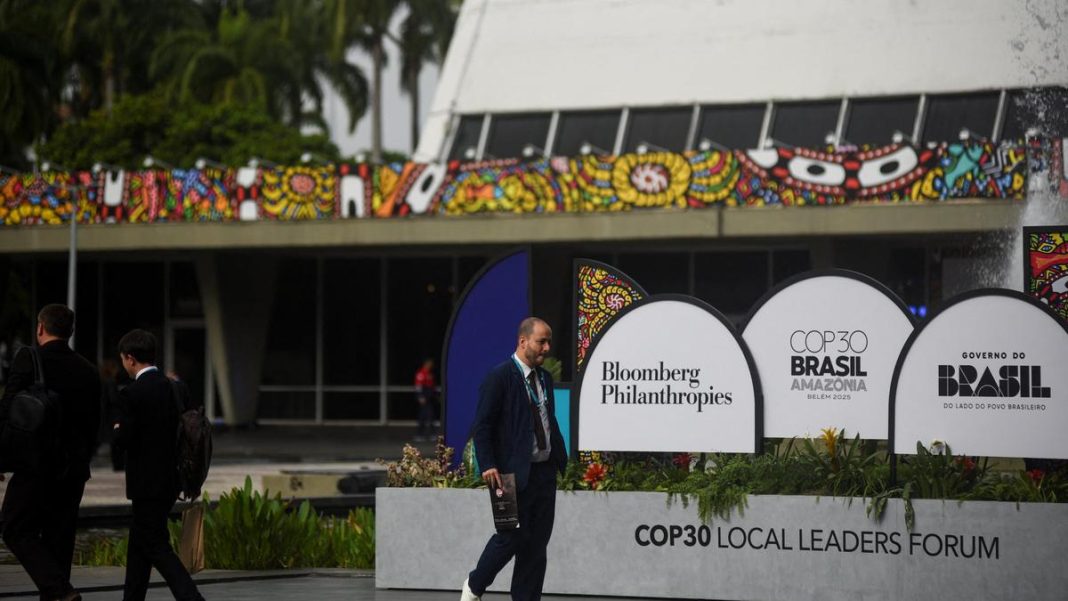India is set to adopt a nuanced and strategically layered approach to its representation at the upcoming COP30 Leaders’ Summit in Belém, Brazil. In a significant move that underscores the nation’s proactive diplomatic engagement on climate action, an envoy will initially represent India at the high-level Leaders’ Summit, with Union Environment Minister Bhupender Yadav slated to join later to lead the delegation through the critical negotiating phases. This dual-pronged strategy highlights India’s commitment to both the political messaging and the intricate technical discussions essential for meaningful global climate progress.
Strategic Groundwork: Envoy at the Leaders’ Summit
The decision to have an envoy represent India at the initial Leaders’ Summit segment of COP30 is indicative of a well-thought-out diplomatic manoeuvre. While the Leaders’ Summit typically features heads of state and government, the presence of a senior envoy, likely a seasoned diplomat or a high-ranking government official, allows for crucial groundwork to be laid. This initial phase often involves setting the tone, articulating national positions, and engaging in preliminary bilateral and multilateral discussions ahead of the main negotiating rounds.
India has consistently advocated for a balanced approach to climate action, emphasising the principles of Common But Differentiated Responsibilities and Respective Capabilities (CBDR-RC), climate justice, and equitable access to carbon space. An envoy’s early participation provides an opportunity to reinforce these core tenets, ensuring India’s perspective is integral to the early deliberations shaping the summit’s agenda. This strategic pre-positioning can help in fostering understanding and building consensus on contentious issues such as climate finance, technology transfer, and adaptation measures, which are paramount for developing nations.
Speaking on the matter, a senior government official, preferring anonymity, elaborated on the rationale: “Our approach ensures that India’s voice is heard from the outset at the highest political level, even as we prepare for the detailed ministerial engagement. It allows us to engage strategically, contributing to the initial framing of discussions and ensuring our national interests and the concerns of the Global South are robustly presented.” This proactive engagement ensures that India remains a central player in shaping the global climate narrative, rather than merely reacting to outcomes.
Minister Yadav’s Role: Leading Critical Negotiations
Union Environment Minister Bhupender Yadav’s subsequent arrival to lead the Indian delegation signifies the shift towards the more intensive and politically charged phases of COP30. Ministers typically engage when key policy decisions are being finalised, commitments are being negotiated, and high-stakes trade-offs are on the table. Minister Yadav’s presence will bring the necessary political heft to India’s representation, enabling direct engagement with counterparts from other nations and international organisations.
India, under Minister Yadav’s leadership, is expected to champion its ambitious climate targets and showcase its progress in areas like renewable energy expansion, sustainable mobility, and the Lifestyle for Environment (LiFE) initiative. The Minister will likely focus on advocating for increased financial flows from developed to developing countries, pushing for a robust framework on loss and damage, and ensuring that any global stocktake outcomes accurately reflect the historical responsibilities and current capabilities of nations. His participation will be critical in shaping the final declarations and securing outcomes that are equitable and supportive of sustainable development pathways for all.
India’s Broader Climate Ambition and Global Expectations
COP30, hosted by Brazil, is anticipated to be a pivotal summit, building on the outcomes of previous COPs and addressing the urgent need to accelerate climate action. For India, the summit represents a crucial platform to reiterate its commitment to its nationally determined contributions (NDCs), including achieving net-zero emissions by 2070. The country’s rapid economic development, coupled with its vulnerability to climate impacts, necessitates a balanced approach that prioritises both growth and environmental stewardship.
India will likely advocate for a clear roadmap on climate finance, pushing for the operationalisation of the new collective quantified goal (NCQG) on climate finance post-2025, which is expected to go significantly beyond the current $100 billion annual target. Furthermore, the imperative for robust technology transfer mechanisms to facilitate green transitions in developing economies will be a key agenda item. India’s strategic representation, starting with an envoy and transitioning to ministerial leadership, underscores its commitment to navigating these complex global discussions with both diplomatic foresight and political resolve, aiming for a future that is both sustainable and equitable for all.
This calculated delegation strategy reinforces India’s position as a responsible global actor, capable of engaging deeply on complex environmental issues while firmly protecting its national interests and advocating for the collective welfare of the Global South.




